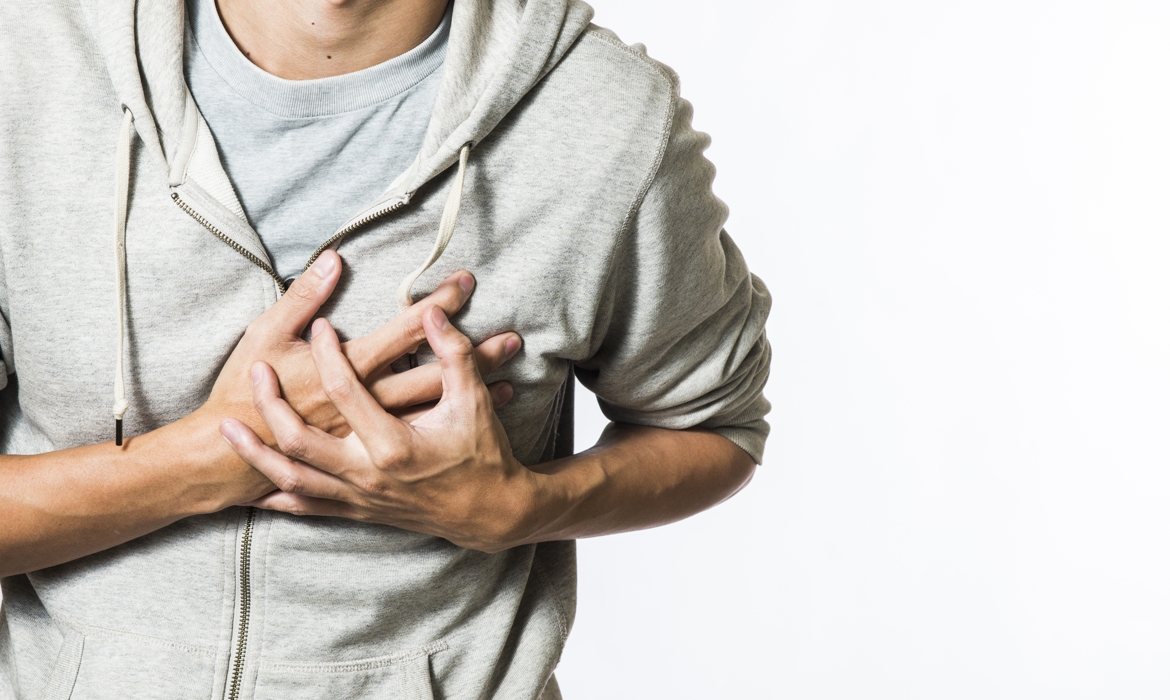
Each year some 610,000 people in the United States die of heart disease, according to the Centers for Disease Control (CDC)—that’s one quarter of all deaths, making it the leading cause of death in the country for both men and women.
Of course not every heart attack kills, but the CDC estimates that around 735,000 Americans suffer from a heart attack annually. It’s scary stuff, but as long as you keep your cholesterol down and limit your fast food intake, you should be fine, right?
Unfortunately it’s not quite so simple. While things like lack of exercise, unhealthy diet, and a family history of heart disease will certainly increase your risk, they aren’t the only factors to keep in mind. Here are six surprising factors that could put you at risk for a heart attack.
You have an autoimmune disease
If you have a history of autoimmune disease like lupus, rheumatoid arthritis, or psoriatic arthritis, then you may be more likely to have a heart attack, says Nieca Goldberg, MD, cardiologist and medical director of the Joan H. Tisch Center for Women’s Health at NYU Langone. Women who developed autoimmune conditions during pregnancy may be especially at risk.
“In women, a history of hypertension in pregnancy, preeclampsia, or eclampsia can increase risk for heart attack and stroke in midlife. Gestational diabetes increases risk for type 2 diabetes, and type 2 diabetes can increase risk for cardiovascular disease five-fold,” she explains.
It’s cold outside
Just as you may have suspected, winter can be hazardous to your health. Sanjiv Patel, MD, a cardiologist at MemorialCare Heart and Vascular Institute at Orange Coast Medical Center says that there are a few reasons the cold may raise the risk for a heart attack.
“Having significantly lower temperatures can cause heart attacks because when it’s cold, the body tries to preserve the heat within its core region, so it’s trying to not let the heat escape the body,” he explains. This can sometimes lead to a heart attack because the blood vessels and arteries constrict and narrow.
You’ve started a new exercise regimen
So you’ve decided to get in shape, which is great, but it’s important to be mindful of how you approach exercise, warns Dr. Patel. If you’ve been a couch potato and jump right into high-intensity workouts, that could lead to a heart attack rather than working to prevent one.
“If you prepare slowly and train yourself, you can do it,” says Dr. Patel. But any sort of big, sudden change can trigger a heart attack, even overexerting yourself during sex (of particular concern for seniors). “In all of these scenarios, what’s happening is a sudden change in your stress hormones that can lead to instability in the blood flow to the heart, which can potentially cause a heart attack.”
You have cancer
Researchers have started to find links between heart disease and cancer, two of the leading causes of death worldwide. Dr. Goldberg points out that certain cancer therapies, like radiation to the chest—especially the left chest—increases your risk for coronary artery disease (CAD), which she describes as a “buildup of cholesterol in the walls of the arteries supplying blood to the heart muscle.”
This, in turn, increases your chances of having a heart attack. Cancer medications, like Adriamycin and Herceptin, also increase risk for heart failure.
You’re exposed to poor air quality
Smog may lead to beautiful sunsets, but exposure to poor air quality can have a myriad of negative effects on your health, including increasing your risk of heart attack. “Bad air quality over time can lead to heart attack because of inflammation,” explains Dr. Patel.
As he explains it, chronic exposure to air pollution causes inflammation as you inhale irritants. As your lungs become irritated, your body has to work harder, which can cause a heart attack or stroke. A corollary effect of living in an area with poor air quality is that you may exercise less or get out less as a result, which also increases your risk factors.
You get persistent leg cramps
You can get leg cramps for any number of reasons, and most of them are totally benign. But if you experience them almost every time you walk for a short distance, and the cramps feel better when you sit down, then it could be a sign of peripheral arterial disease (PAD).
If that’s the case, the cramping is likely caused by atherosclerosis, or the narrowing and blocking of peripheral arteries—like the ones in your legs. If left untreated, PAD can lead to gangrene, amputation, or eventually coronary artery disease and heart attack.
Of course, in addition to these surprising signs, Dr. Goldberg emphasizes the importance of not ignoring the traditional symptoms of heart disease, including chest tightness and/or pressure, shortness of breath, rapid heartbeat, fainting or nearly fainting, and lower chest pressure. Seek medical attention immediately if you’re experiencing any of these symptoms.

























